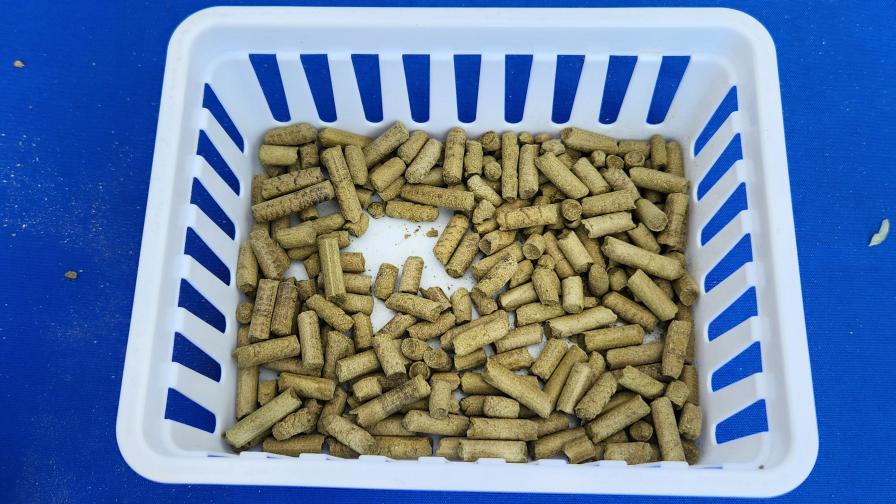New Research Project Turning Whole Hops Into Pellets — Here’s Why

Pictured is a box of pelletized hops as seen during the Spring Hops Field Day at the UF/IFAS Gulf Coast Research and Education Center in Balm, FL.
Photo by Brad Buck, UF/IFAS
Did you know using hops in pelletized form is a preference for many craft beer brewers? The modified form of hops provides distinct advantages over using whole cone hops. Microbrewers from the Tampa, FL, area want in on this action with locally grown hops. University of Florida scientists are ready and now equipped to help make that happen.
Researchers at the UF/IFAS Gulf Coast Research and Education Center (GCREC) recently received a hammer mill and a pelletizer from a local operation, Sunshine State Hops. The hammer mill grinds whole cone hops to powder, and the pelletizer takes hops powder and converts it into pellets. Discussion about this new acquisition was part of the agenda at the Spring Hops Field Day held earlier this month at GCREC.
“Brewers use several forms of hops to make beer, including pellets, fresh whole cones, dried whole cones, and oil extracts,” says Shinsuke Agehara, a UF/IFAS Associate Professor of horticultural sciences. “Each of them offers distinct advantages and is suited to different brewing processes. However, pellets provide practical advantages in terms of storage, consistency, ease of use, waste reduction, and cost-effectiveness.”
Pellets break down quickly in water, so acids and oils can be more efficiently extracted acids and oils, which give craft beer its bitterness and aroma, Agehara says. The pellets also have a longer shelf life than whole, dried cones and they can save shipping fees and storage space because they’re more compact.
The craft beer business in Florida continues to boom. Access to fresh hops in pelletized form can help give local brewers another needed leg up on the macro-brewery competition. “It’s convenient for the brewers,” Agehara adds. “Compared to whole cone hops, pellets contain less vegetative tissues, so they absorb less water during brewing, thus reducing beer losses.”
This newest endeavor is part of what’s grown into a multiyear, multilayered collaborative body of work by UF/IFAS researchers to help make hops a viable alternative crop for Florida growers.








